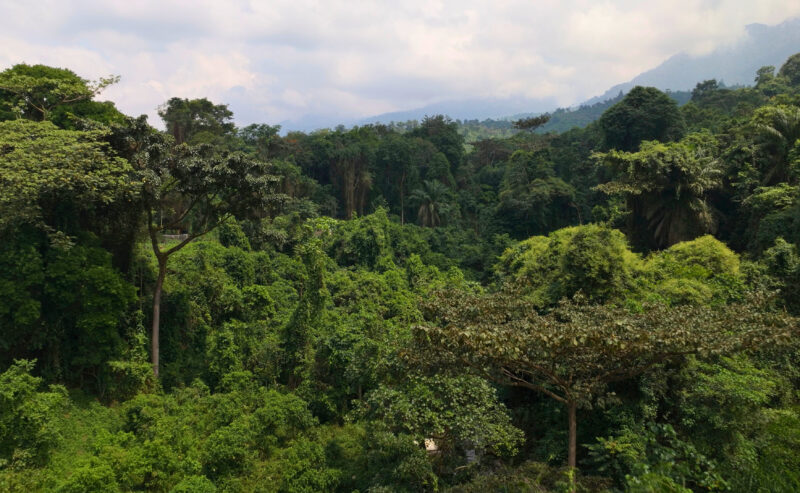
Contribute to the Century Ahead >



Home » Virunga Alliance
Virunga National Park’s resources have enormous economic value. When these resources are poorly managed, they can lead to extreme cycles of violence. Cultivating peace and stability in the region is tied to the Park’s ability to harness the wealth of the Park to help build new jobs and opportunities for the local population.
The Park is located in a region best described as a low intensity conflict zone. Rangers are deployed throughout its territory, with the exception of its northern extremities, currently in the hands of the ADF-NALU militias, and the region of Masisi in the extreme South – a territory with a lower ecological value. The number of armed groups’ members is estimated at 1,500 and 3,000 individuals in and around the Park. These groups engage in criminal activities including trafficking of charcoal, illegal fishing, illegal agriculture, poaching for ivory and bush meat, kidnapping, and extortion (barriers and taxes).
Civilians are the first victims of armed groups, including through kidnappings and attacks. In a recent report, the Kivu Security Tracker estimates that 3,000 incidents claimed the lives of over 6,000 people between 2017 and 2019 in both South and North Kivu. Hundreds of kidnapping cases are also recorded each year. Human Right Watch published an in-depth investigation for the period 2017-2020 in the Rutshuru area specifically.
Armed groups are responsible for numerous violent deaths among civilians and the Park’s rangers. Over 200 rangers have been killed in the line of duty in the past 25 years.
The region has one of the highest population densities in Africa with around 300 inhabitants/km2. Five million people live within a day’s walk of the Park boundaries, one of the highest rural population densities in Africa.
The socio-economic conditions for the Park’s adjacent populations are extremely precarious. Outside the cities, residents live mainly off subsistence agriculture, livestock and fishing. Land in the region is fertile but yields remain low because of land tenure problems, lack of access to credit, insecurity and poor agricultural practices. The transformation industry for agricultural produce is largely absent, and there are few jobs outside smallholder farming. The poor state of the roads further adds to the challenges.
In North Kivu, more than 90% of the population survive below the extreme poverty threshold defined by the World Bank at 1.9 USD per day per person. Destitution is such that many of the poorest are entirely excluded from the monetary economy and daily work is often paid for in food or agricultural products.
The income generated from natural resource trafficking from the Park is estimated at 175 million USD per year. Over 100,000 people derive their direct livelihood from these illegal activities. About 50 million USD of this figure contributes to the wealth of irregular militia groups. The money they obtain from kidnappings, robberies and murders adds to their power. Tolls collected at informal road barriers also represent indirect revenues from the Park’s products.
International trafficking involves the removal of ivory and hardwoods. This international trafficking poses a serious risk, especially for elephants, but its impact remains low compared to local trafficking.
The clearance of forest to produce charcoal is a major threat. Charcoal, known locally as “makala” is massively consumed by the inhabitants of the cities of Goma, Beni and Butembo. To a lesser extent, wood is also used for carpentry and construction.
The degradation of natural habitats, particularly deforestation and illegal crop production, is another major problem, affecting one fifth of the park’s area. Armed groups extort “protection” payments from those cultivating crops within the Park boundaries.
The shores of Lake Edward attract armed groups. They extort money from legal fishermen, or fish themselves, using techniques that cause serious damage to the environment. At the same time, they slaughter hippos and other large mammals, either consuming or selling their meat.
The threat of oil exploitation, which was very present in 2015, has diminished temporarily, but remains real. The Park’s success in opposing illegal oil lies in the efforts of ICCN and its partners to uphold the rule of law. The very low price of a crude barrel also helps to ward off the threat.
The threats are multifold. For the most part, their roots lie in the poor livelihoods of the Park’s neighboring population. Armed groups act as predators who fuel an illegal and violent economy cycle.

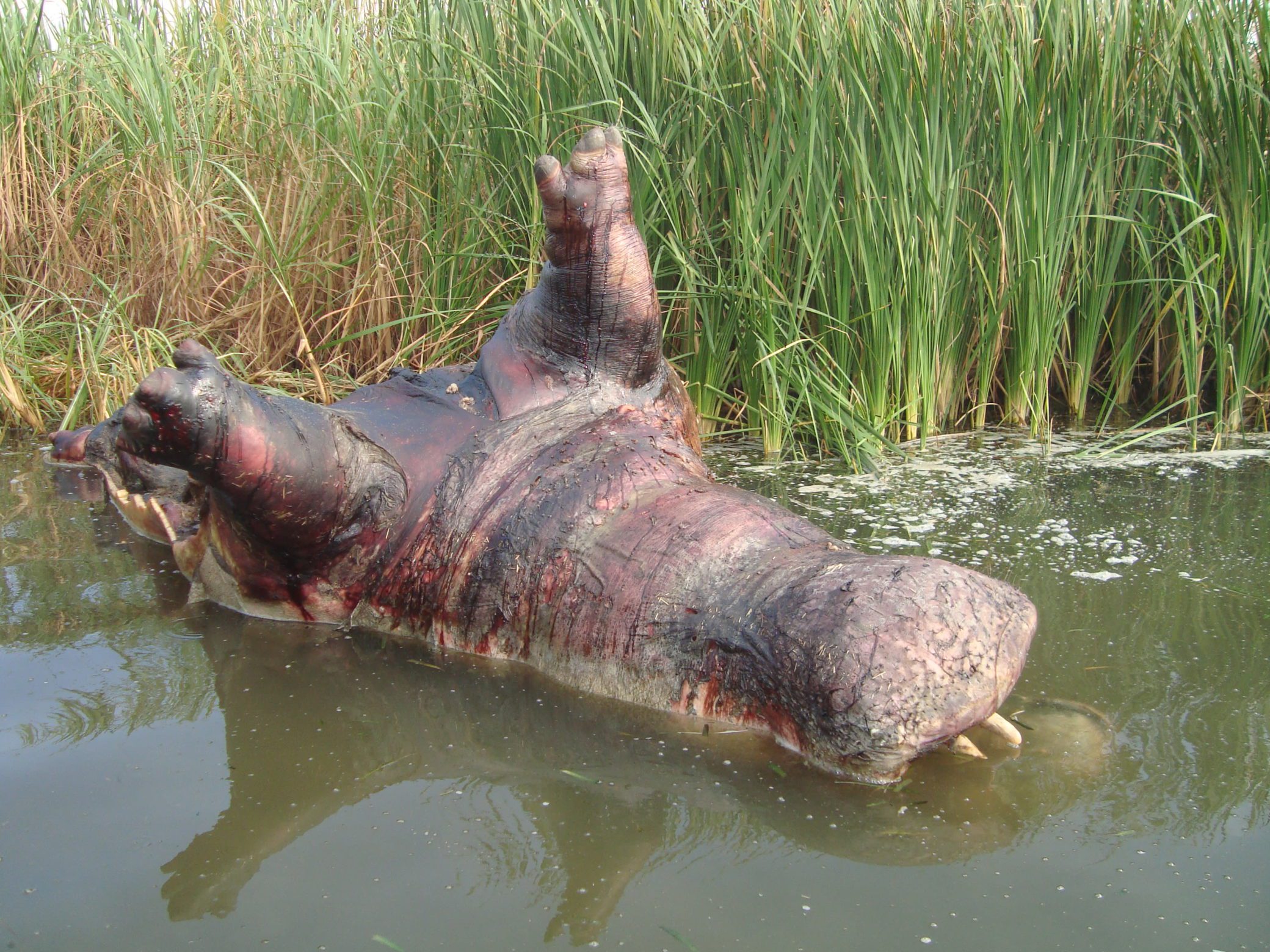
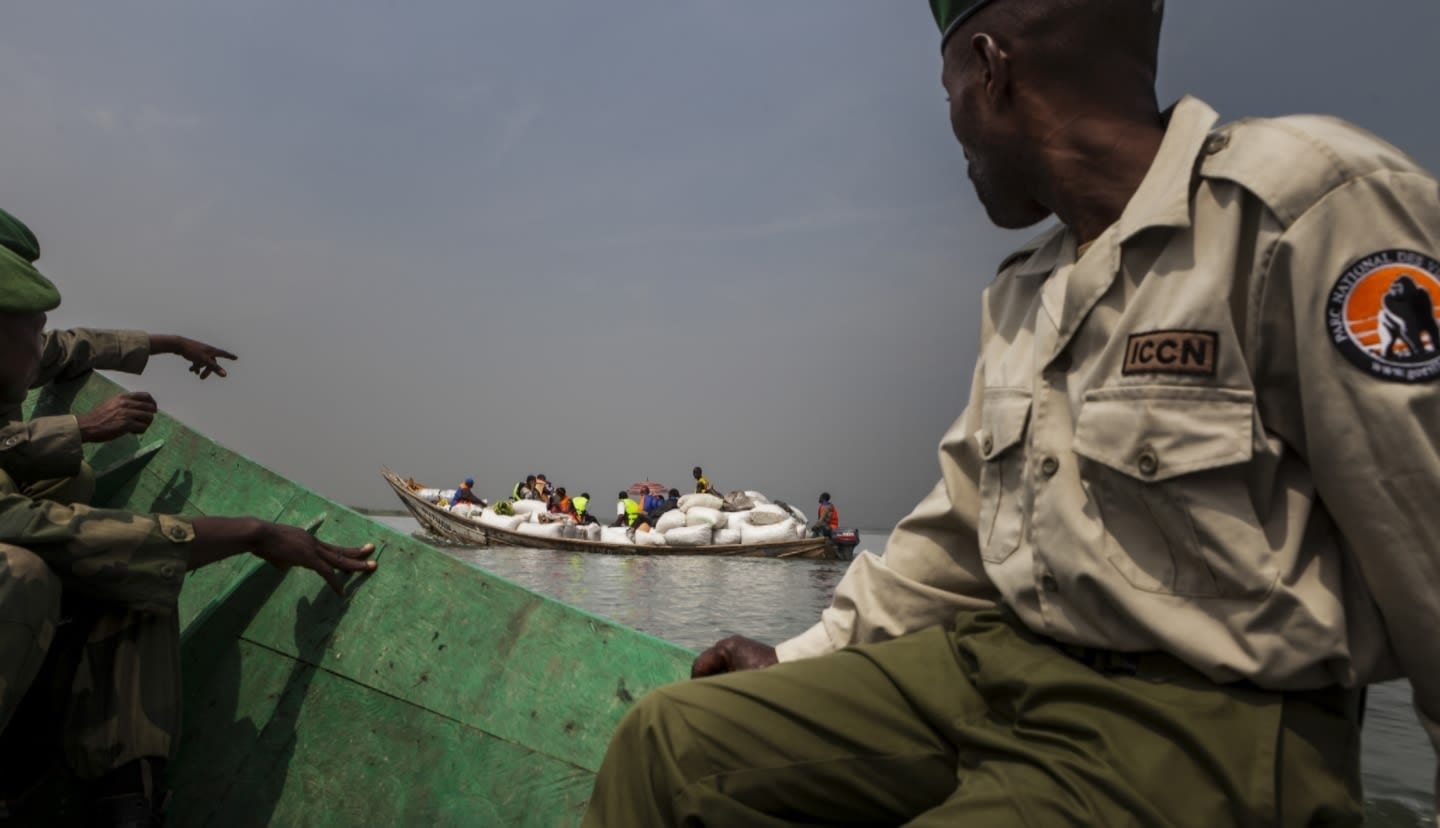
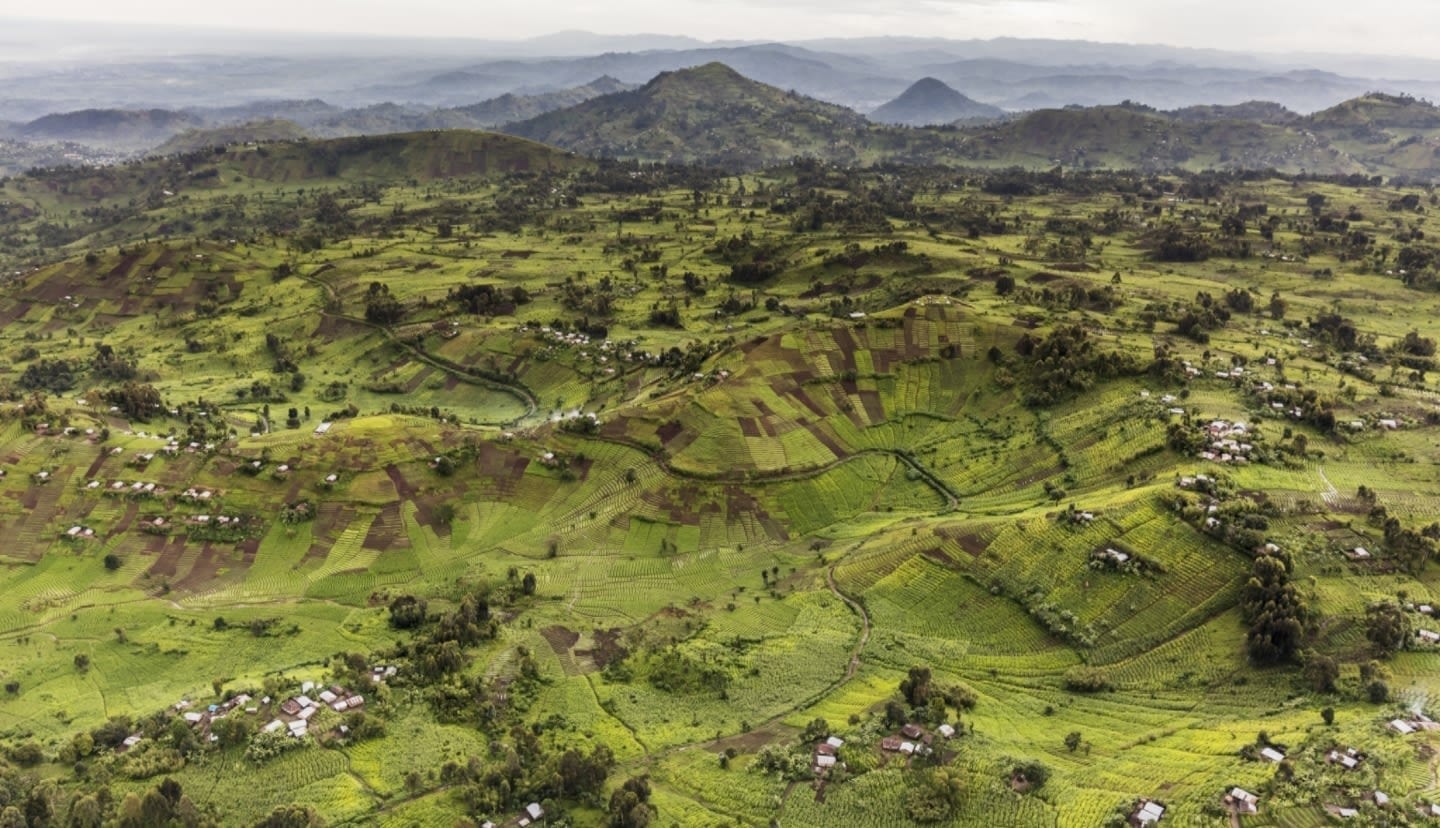
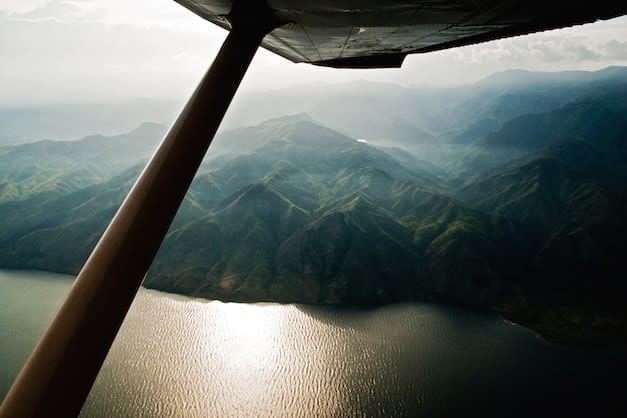
With the second largest outbreak in history, the effects of Ebola have been particularly harmful to the already vulnerable communities of Eastern DRC. Not only have tourism and market access been severely disrupted but political instability has also been exacerbated. The long-term effects of the Covid-19 crisis are still to be understood. It forced the Park to suspend tourism, depriving it of important tourism revenues. Additional measures were taken to protect staff, local communities, the Gorillas & other primates that are believed to be extremely susceptible to the virus.
Poverty Index
People in Congo are living below the extreme poverty line of $1.90 per person per day (2018)
Population
Individuals currently living in North Kivu – five million live within a day’s walk of the Park.
Population Growth Rate
Annual population growth rate for the Democratic Republic of Congo (2018).
Economic Growth Rate
Economic growth rate for the Democratic Republic of Congo (2019).
Number of Armed Groups
Number of armed groups members in/around the Park (2022)
Born out of the Congolese commitment to protect Virunga National Park and the five million people who live within a day’s walk of the Park’s borders, the Virunga Alliance aims to foster peace and prosperity through the responsible economic development of natural resources.
In 2013, the Park launched the Virunga Alliance which brings together North Kivu’s public authorities, civil society and the private sector around a shared vision of sustainable development. Together, they pursue three objectives: the conservation of the Park’s natural resources, the reduction of poverty and the promotion of peace. They are interdependent and of equal importance because the success of one ultimately determines the success of the others.
Park rangers are employees and representatives of the State and are responsible for upholding the law within the Park area, and with certain restrictions, also in its periphery. Their tasks include patrolling the Park, the seizure of illegal shipments, arresting suspects and transferring them to the judicial system. Beyond the protection of fauna and flora, rangers make a significant contribution to the stabilization of the entire region.
In addition to its sovereign missions, the Park is also a major economic player in the province. Its development agenda is focused on three pillars: tourism, energy and agriculture.
Virunga National Park is part of the Institut Congolais pour la Conservation de la Nature (ICCN) which is an institution of the Democratic Republic of Congo, (DRC), responsible for the protection of nature. The Virunga Foundation (VF) is a charitable organization under British law, whose mission is to contribute to the protection and development of the park.
In 2015, the ICCN and the Virunga Foundation entered into a cooperation agreement – a public-private partnership – running until 2040. While the organisations are separate, in the field, ICCN staff and Virunga Foundation employees work under the authority of a single management.
Several legal entities support the implementation of Virunga’s activities. They were established to contribute to the well-being of communities neighbouring the Park and to ensure its financial autonomy through the creation of new revenue streams. All entities are limited liability companies with a social purpose.
Virunga was awe-inspiring at the end of the 1980s. The two Congo wars, from 1996 to 1997 and from 1998 to 2003, almost caused its destruction.
Yes, ICCN rangers have never given up on their mission to protect the Park, even during the war years, and sometimes without being paid for long periods. Thanks to their dedication, Virunga’s flora and fauna are now in the process of recovery.
To remove Virunga National Park from the List of World Heritage in Danger for its 100th anniversary (1925-2025).
The Virunga Alliance pursues an economic transformation agenda. It aims to create the conditions that will allow the creation of jobs and increasing income. The supply of energy, access to credit for entrepreneurs, roads construction, support to the agricultural sector and strengthening good governance are the main instruments.
Ultimately, the Virunga Alliance plans to generate 1 billion USD in economic activity and create 100,000 jobs – figures that would make the park profitable for the local population who, so far, bears alone the cost of conserving the Park.
To create 1 billion USD in sustainable and shared economic activity.
The reasons for individuals joining an armed group are multiple and complex. They include the protection of the family and the community from threats, access to food and alcohol, the desire for a better income, political indoctrination and forced recruitment. To discourage young men from the grip of militias, the Virunga Alliance establishes the pre-conditions that allow their members to make a choice: remain in the armed group or leave and lay down their weapons to start a new life with a legal job.
The Virunga Alliance does not target armed groups as such – to avoid encouraging participation – but creates an environment that benefits the entire community in which members of armed groups plan to resettle.
To restore the rule of law and create 100,000 jobs to offer an alternative for members of armed groups.
The Virunga Alliance was founded on the principle that the Park’s survival depends on its ability to act as an asset for its surrounding communities. Through the responsible and sustainable development of the Park’s key assets – tourism, clean energy, and sustainable agriculture – the Virunga Alliance is working to kick-start a green economy in eastern Congo, for the benefit of its neighbouring communities.
Tourism in the Park holds massive potential for eastern DRC and is a growth industry for the region. Developing skilled, profitable, and sustainable jobs could generate billions in revenue for the country.
The Virunga Alliance is working to tackle energy poverty by harnessing the enormous hydrological resources of the Park to create sustainable electricity for local communities and businesses.
Electricity provided by the Virunga Alliance’s clean energy program allows businesses to expand. Life is breathing again in the private sector, especially agri-business processing.
Eastern Congo suffers from two key structural problems that hamper its economic development: inadequate roads and a very adverse business climate. As part of the three pillars of the Virunga Alliance, there is a commitment to improving local infrastructure and governance.
Transport is key to sustainable development and a thriving agricultural business. In the absence of quality feeder roads, small farmers cannot reach urban markets and sell their produce, or can only reach markets after excessive delay and difficulty with produce whose quality has deteriorated. Instead, intermediaries buy the harvest at a very low price and keep the profit margins. Many products that could be produced within the DRC are imported and sold at much higher prices.
Legal insecurity and excessive taxation are another obstacle to small and medium-size entrepreneurship. Many growing businesses struggle with challenges, such as corruption, which can serve as serious impediments to business growth.
The Virunga Alliance is working to tackle these issues through the construction and the maintenance of 1000 km of feeder roads. It will also consolidate the rule of law by leveraging the judicial authority enshrined in the statute of its Rangers and providing legal and fiscal advice to local entrepreneurs. By working on these two “enabling” factors, the Park will unlock the economic potential that hydroelectricity brings to the region.
The Virunga Alliance is the result of the collaboration of the Institut Congolais pour la Conservation de la Nature (ICCN), the Virunga Foundation, and 127 local institutions from the private sector, civil society and government agencies.
The program is being implemented by an experienced team of Congolese and international experts, with a long track record of delivering effective results in the region. The team operates through Virunga Energies, a DRC subsidiary of the Virunga Foundation, structured to ensure good corporate governance and to promote institutional sustainability.
The Public-Private Partnership agreement established in 2011 gives the Virunga Foundation an official mandate and the management freedom needed to rapidly and efficiently implement a conservation focussed peace-building program. It also keeps the Virunga Foundation accountable to the State.
All external and internal resources are deployed within a transparent framework, designed in consultation with the Park’s neighboring communities, and managed in terms of best practice corporate governance.
Thanks to the commitment of the Virunga Rangers, Congolese government, and partners and supporters from around the world, the Park has seen a remarkable period of transformation since the creation of the Virunga Alliance.
Free Public Lighting
Over 400,000 people in rural and urban areas benefit from free public lighting.
Access to Water
900,000 people have access to water from Park sources or powered by the Park’s electricity
Small Coffee Producers
6,000 small producers sell Virunga-branded coffee to Europe, Australia and the US.
Fishermen
Over 8000 fishermen, members of women cooperatives and local transporters live off the fish value chain from Lake Edward.
Tourists
Over 17,000 tourists have visited Virunga
Virunga National Park depends on the support from its international community to sustain its vital programs, such as Ranger training, the Fallen Rangers Fund for Widows, and the adopt-a-gorilla program, which delivers benefits to its wildlife, employees, and local communities.